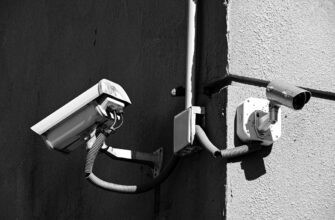In the fast-paced world of cryptocurrency trading, securing your digital assets is non-negotiable. Hardware wallets provide the ultimate protection against hackers, phishing scams, and exchange vulnerabilities by keeping your private keys offline. This guide explores the top hardware wallets specifically optimized for active traders who prioritize both security and accessibility.
## Why Traders Need Dedicated Hardware Wallets
Unlike software wallets or exchange accounts, hardware wallets store private keys in a secure physical device, creating an “air gap” between your crypto and online threats. For traders, this means:
– **Zero exposure to exchange hacks** even during frequent transactions
– **Instant transaction signing** without compromising key security
– **Multi-currency support** for diverse trading portfolios
– **Recovery options** via seed phrases if devices are lost
– **Tamper-proof design** verified through open-source firmware
## Top 5 Hardware Wallets for Active Traders
### 1. Ledger Nano X
The industry leader balances robust security with trading-friendly features:
– Bluetooth connectivity for mobile trading via Ledger Live app
– Supports 5,500+ coins including BTC, ETH, and all major altcoins
– Secure element chip (CC EAL5+) and PIN protection
– Compact design with built-in battery for on-the-go use
*Ideal for*: High-frequency traders managing diverse portfolios across devices.
### 2. Trezor Model T
Pioneering open-source security with advanced trading utilities:
– Touchscreen interface for seamless transaction verification
– Native integration with Trezor Suite desktop app
– Supports 1,600+ coins with Shamir Backup for asset division
– On-device passphrase encryption for hidden wallets
*Ideal for*: Security-focused traders valuing transparency and coin diversity.
### 3. CoolWallet Pro
Revolutionary card-shaped wallet for mobile-centric traders:
– Bluetooth 5.0 connectivity and military-grade EAL6+ chip
– Biometric verification and waterproof/CR2032 battery
– Supports staking for ETH 2.0, DOT, and other PoS coins
– Slim credit-card profile fits in physical wallets
*Ideal for*: Mobile traders needing discreet, on-the-move access.
### 4. KeepKey
Budget-friendly option with streamlined trading features:
– Large display for clear transaction confirmation
– Shapeshift integration for in-wallet token swaps
– Supports 40+ major coins including ERC-20 tokens
– Simple recovery process with 12-word seed phrase
*Ideal for*: Entry-level traders seeking essential security at lower cost.
### 5. BitBox02
Swiss-engineered minimalist wallet with trading advantages:
– Dual-chip architecture with microSD backup option
– One-click trading via integrated exchanges
– Open-source firmware with tamper-proof seals
– Supports BTC, LTC, ETH + ERC-20 tokens
*Ideal for*: Privacy-focused traders preferring compact, efficient design.
## Key Selection Criteria for Trading Wallets
When choosing your trading hardware wallet, prioritize:
1. **Exchange Compatibility**: Native integrations with platforms like MetaMask or Exodus
2. **Transaction Speed**: Quick confirmation times during volatile markets
3. **Mobile Functionality**: Bluetooth/iOS/Android support for trading anywhere
4. **Multi-Currency Support**: Coverage for your entire trading portfolio
5. **User Experience**: Intuitive interfaces for rapid trade execution
## Setting Up Your Trading Wallet: 4 Critical Steps
1. **Initialize Securely**: Generate seed phrase offline in private location
2. **Verify Receiving Addresses**: Always cross-check on device display
3. **Enable 2FA**: Add extra authentication layers for wallet access
4. **Test Small Transactions**: Send minimal amounts before large trades
## FAQ: Hardware Wallets for Trading
**Q: Can I trade directly from a hardware wallet?**
A: While wallets don’t host trading interfaces, they integrate with exchanges like Coinbase or decentralized platforms to sign transactions securely.
**Q: How often should I use my hardware wallet for trading?**
A: Use it for all withdrawals from exchanges. For active day trading, keep small amounts on reputable exchanges and transfer profits to hardware storage daily.
**Q: Are hardware wallets compatible with DeFi platforms?**
A: Yes! Most connect to Web3 wallets like MetaMask for secure DeFi trading without exposing private keys.
**Q: What happens if my hardware wallet breaks during a trade?**
A: Your assets remain safe. Restore access via your recovery phrase on a new device within minutes.
**Q: Can I stake coins while using a hardware wallet?**
A: Absolutely. Wallets like Ledger and CoolWallet support in-app staking for proof-of-stake cryptocurrencies.
## Final Security Reminders
Always purchase hardware wallets directly from manufacturers to avoid tampered devices. Combine your hardware wallet with strong operational security: use dedicated email/device for crypto activities, enable all available 2FA methods, and never share recovery phrases. For traders managing substantial assets, consider multi-signature setups requiring multiple hardware wallets for transactions. By implementing these measures, you trade with confidence knowing your portfolio is shielded from digital threats.








